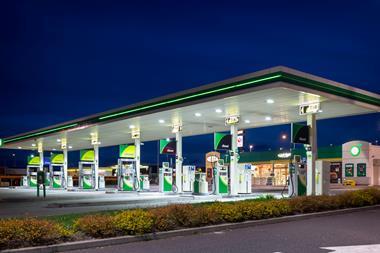An application by Tesco to open a petrol filling station in Looe, Cornwall, has been defeated after a local campaign supported by MRH, the top company in Forecourt Trader’s Top 50 Indies.
The plans for a supermarket and filling station had been recommended for acceptance by the council’s planning officer, but councillors rejected it by 16 votes to one.
MRH operates the only petrol filling station in the town. It is situated by the harbour wall and its 24-hour operation serves the needs of both the local community and users of the harbour.
Fraser Duffin of MRH said: “Our argument was there was already one petrol filling station. There wasn’t enough business for another otherwise there would have been one, so if they opened we would close. This would have meant the harbour losing its amenity and the 24-hour service for the town being replaced by 8am-8pm at Tesco.”
However Duffin said objectors to the petrol filling element of the plan were hampered by the National Planning Policy Framework (NPPF) which meant they could not just oppose the filling station but had to fight the entire plan.
But one of the priorities in the NPPF is sustainability and growth of local businesses, and objectors argued that closure of the MRH site would lead to the loss of jobs and an important harbour facility.
Duffin said: “We canvassed local people and got strong support from RNLI, the harbour master and particularly the coastguard who said would be potentially dangerous if people to set off without sufficient fuel or provisions.”
He said that in this case the campaign against the development plans was successful, but it highlighted a need for change in the NPPF.
He said: “The point is a supermarket has to assess the impact its plans will have on local shops but there is no similar requirement for the impact of any petrol filling station in a plan and that is what needs to be changed.”
The PRA has evidence that each new supermarket filling station sucks business out of its locality equivalent to five independent filling stations and it is now canvassing ministers to develop a precedent, so when applications are made there are agreed grounds for refusal based on potential loss of petrol filling stations.

































No comments yet